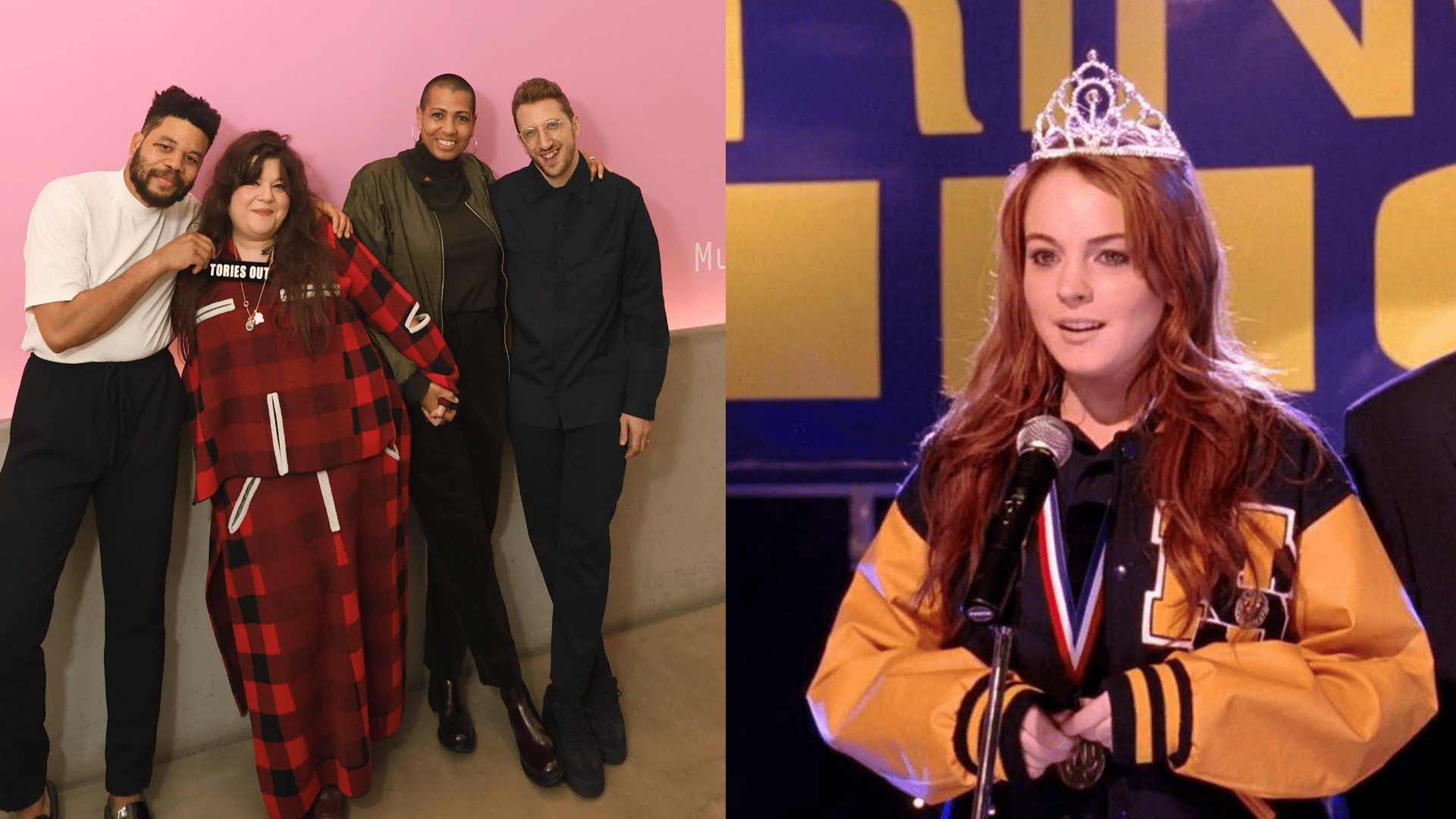In 2004, Cady Heron broke her Spring Fling Queen tiara into pieces to share it. After her came Adele, snapping a miniature gramophone in two to acknowledge that it was Beyoncé’s Lemonade that should have won the 2017 Album of the Year Grammy, really. It’s the gesture of legends, a recognition of the sheer futility of competition and, in the year 2019, more in vogue than ever before.
After a collective plea from its four shortlisted nominees, this year’s Turner Prize has followed in this tradition, and named Lawrence Abu Hamdan, Helen Cammock, Oscar Murillo and Tai Shani as the collective winners.
In a joint letter to the jury, the artists wrote that we exist in a time of “political crisis in Britain and much of the world”, and noted that “there is already so much that divides and isolates people and communities”. It read: “We feel strongly motivated to use the occasion of the Prize to make a collective statement in the name of commonality, multiplicity and solidarity – in art as in society.”
Abu Hamdan, Cammock, Murillo, and Shani said they decided to make request very early on, coming up with the idea the very first time they met together. The nominees admitted to conspiratorially making a secret WhatsApp group, jokingly called “the winners”, to strategise for their campaign.
Each piece of work shortlisted dealt with themes that were as diverse as they were overtly political, and it seems that the jury were happy to be relieved of the duty to seemingly judge them against one another. Who could say that Shani’s surrealist installation imagining a post-patriarchal world is objectively ‘better’ than Cammock’s mixed media documentary on the women overlooked in the Northern Irish civil rights struggle?
In a conversation with BBC News, head judge Alex Farquharson, director of Tate Britain, said that the Turner Prize had always evolved in turn with the times, and that the collective award was “very specific to this year”.
Some have compared the Turner Prize jury’s decision to that of the Booker Prize, widely regarded as the most prestigious literary accolade in the UK. Earlier this year, the Booker jury jointly awarded the £50,000 prize to British fiction author Bernadine Evaristo, the first black woman to win the prize, and famous Canadian novelist Margaret Atwood.
However, instead of the nominees appealing to the jury, the Booker decision was made by the judges alone. Critics’ concerns that the joint award would mean Evaristo, a lesser-known writer than Atwood, would be overshadowed were unfortunately validated when a recent BBC News segment covering the Booker failed to mention her by name.
Evaristo expressed her (justified!) disappointment on Twitter: “@BBC described me yesterday as ‘another author’”. She continued, noting, “how quickly & casually they have removed my name from history.”
What’s clear from these two examples is that there’s a right way to do this and a wrong one. While the Booker result misdirected well-deserved attention away from a worthy winner, this year’s Turner Prize has successfully brought into focus four equally pressing social issues, without pitting them against each other. The prize, according to Charlotte Higgins, chief culture writer at the Guardian, “exists not because its organisers strongly believe in the objective reality of the ‘best’ artist making work in Britain in any given year, but because it brings a huge audience to contemporary art.”
Indeed, the 2019 Turner Prize show, this year hosted in Margate, Kent, is one of its most popular editions outside of London, having already drawn an estimated 100,000 visitors.
